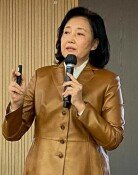Im Jong-seok should not meddle in inter-Korean relations
Im Jong-seok should not meddle in inter-Korean relations
Posted September. 14, 2018 07:22,
Updated September. 14, 2018 07:22
It seemed completely out of the blue. “The special envoy to North Korea visits Pyongyang once again, with an earnest heart to determine our own conditions and circumstances,” Presidential Chief of Staff Im Jong-seok wrote on Facebook last Monday. It was not a fragment of thought. Though it could be an understandable remark as the chief of the Panmunjom Declaration Execution Committee, it was annoying in some way.
His Facebook posting was published the following day after the list of the special envoy's mission was announced ahead of the visit to North Korea. As Im was not included in the list, his posting appeared to be wistful. At that time, there were rumors that he would go instead of Chung Eui-yong, head of the National Security Office. Im presided the welcoming dinner for Kim Yo Jong in February and was her counterpart in the Panmunjom meeting on April 27.
The presidential chief of staff dropped a bombshell on Tuesday. He urged the National Assembly leadership and leaders of the opposition parties, who declined to join President Moon’s visit to North Korea, to “be cool and sophisticated, instead of old-fashioned.” He did not conceal disappointment. He impatiently pressed for outcomes.
Im stressed the power of party leaders, saying that he also “joined mainstream politics early.” As a sociable junior in the past, the newly-elected politician used to eagerly join dinners of party leaders when he was called. Even as re-elected and deputy mayor of Seoul later, however, he was still inexperienced, despite his eagerness.
His recent behavior was reminiscent of his awkwardness 30 years ago. When Im, who headed the University Students Association of Korea, appeared in protests, thousands of students would leap to their feet and sing the marching song, chanting “University Students Association of Korea, savior of the country!” When the police pulled in closer, hundreds of students would surround him and fight for him, while droves of others would shout “I’m the one” and helped him flee (an excerpt from "The Modern History of National Liberation" by Park Chan-soo).
North Korean defectors attest that his name was recalled in North Korea at that time. He was known as a "new hero fighting against Fascists," to the equal extent of Lim Su-kyung, who was dispatched from the same association to attend a student festival in Pyongyang decades earlier. Maybe the student activist-turned-politician thought that he could be influential this time again, contributing to relaxed relations with North Korea.
But would that be the right thing to do? Maybe he was not wary enough of disapproving opposition leaders and the public. All aspects of foreign policy, including inter-Korean relations, lead to domestic politics in democracy. No matter how grand the agreement is at national level, it would mean nothing if the government fails to convince the public and the parliament.
The contrast shown by two former U.S. presidents who helped conclude the First and Second World War should be a good lesson. Woodrow Wilson, former university dean, succeeded in convincing the world on the need for League of Nations, but he failed to obtain approval from the opposition party at home, which dominated the Senate back then. Franklin Roosevelt, who was a true politician to the core, learned from Wilson’s failure and signed a private alliance with a prominent opposition party leader prior to attending the Yalta Conference. Thanks to his wisdom, the United Nations stands to this day.
It is questionable whether U.S.-North Korea negotiations, if successful, would gain approval from Congress within President Donald Trump’s term. President Trump is so preoccupied with mid-term elections that he may focus on political conditions at home rather than negotiations with the North. That means everything aspect of the inter-Korean meeting outcomes, except for denuclearization commitments, would become only a potential agreement. There is no reason to cause controversy by showing unnecessary and indiscreet eagerness.
klimt@donga.com







